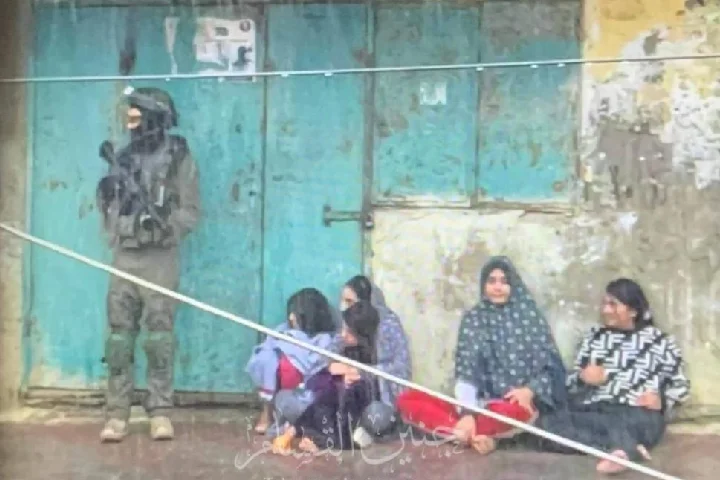

Israeli forces, as expected, have sided with settlers and killings of Palestinians in the West Bank mounted.
West Bank – the original site of Israeli-Palestinian conflict – almost out of sight of news, yet it is simmering for more than six months and is at the heart of the ongoing Israel-Hamas flare-up in Gaza. The war ignited by Hamas is taking place in Gaza, with a brewing second front on Israel’s northern border with Lebanon.
The current conflict in fact began in the West Bank months back when Israel, despite promising in the Abraham Accords with UAE and Bahrain, didn’t prevent new settlements and the settlers-Palestinian violence ensued. The Israeli forces, as expected, sided with settlers and killings of Palestinians in the West Bank mounted.
The West Bank is a chunk of land east of Israel. It’s home to nearly 3 million Palestinians, and would make up the heart of any Palestinian state. Israel took control of it from Jordan in 1967 and has allowed Jewish settlers in West Bank move in many parts of the territory. But the Palestinians, and most of the international community, consider it illegally occupied Palestinian land.
Israel has controlled the West Bank since the Six-Day War, when its forces routed the Arab states. For many Jews, the West Bank — which Israel also calls Judea and Samaria — was the heartland of the ancient Jewish state. It’s home to many Jewish holy sites, like the Cave of the Patriarchs in Hebron, that Jews were previously cut off from. In practice, Israeli control of the West Bank means military administration of a territory full of Palestinians who chafe under Israeli restrictions.
There are about 700,000 Jewish settlers living in the West Bank, many of whom live near the border with Israel. In a two-state deal, a significant number of settlers — two years ago, the number was estimated around 185,000, a number that’s likely only grown — would have to leave the West Bank.
Most of the world considers these settlements illegal under international law, but despite this successive Israeli governments have pledged support for them. Israel views the West Bank as “disputed territory,” and contends its settlement policy is legal.
The settlements have continued to grow. They’ve been particularly a priority for Right-wing Prime Minister Benjamin Netanyahu’s current and most hawkish government, in which ultranationalist finance minister Bezalel Smotrich — himself a settler — also has shouldered responsibility within the Defense Ministry for settlements. Another sign of government priorities: The Knesset’s Foreign Affairs and Defense Committee, which oversees military policy, is controlled by the governing coalition. Before the war, according to the official listing of its agenda, the full panel hadn’t held one meeting this year on the army’s readiness for an attack from Gaza.
In the West Bank, the rising violence — by Palestinians and by settlers — reportedly led to the Israeli army increasing its troop strength to as much as twice the normal level in the months before the October 7 Hamas attack. When the war began, units that normally would be on the Gaza border wereureportedly deployed in the West Bank.
Since the war began, clashes in the West Bank have only increased. Israel has called up massive numbers of reservists. Many of the reserve units have reportedly been sent to the West Bank, so that regular army units can be shifted to the Gaza front.
In the wake of Hamas’ attack on October 7, Palestinians are being subjected to tight restrictions on movement within the West Bank and between the West Bank and Israel, with Israeli military forces imposing a full closure of checkpoints and roadblocks. Palestinians living in the West Bank have told media organisations that the closure has significantly impacted their daily lives, restricting their ability to travel for work, school, medical treatment and other essential activities.
More than 200 Palestinians, a major chunk of them being women and children, have been killed in direct confrontation with settlers or Israeli Defence Forces since October 7 Hamas attacks. Israeli settlers, according to reports, have been provided with assault rifles and other weaponry recently delivered by the US special aeroplanes. As of mid-September this year, the United Nations had reported 798 settler-related incidents in the occupied territory, leading to 216 Palestinians injured. In the same period, Israeli forces killed 179 Palestinians in the West Bank.
CNN, in its latest report, spoke with residents in the West Bank who say they are fearful of a wave of violence from the Israeli military and security forces, as well as revenge attacks by the estimated 700,000 Israeli settlers living in the area.
In a coordinated operation, the North West District of Delhi Police apprehended 38 Bangladeshi nationals…
A recent report by the Tibet Action Institute has unveiled troubling evidence of mistreatment, forced…
Heavy rain lashed many districts of Kerala on Friday, disrupting normal life and causing waterlogging.…
Foreign Secretary Vikram Misri met US Under Secretary of Defence Elbridge Colby along with Indian…
India is emerging as a strong growth market for steel, standing out as the only…
External Affairs Ministry Spokesperson Randhir Jaiswal on Thursday has reiterated India's stance on bilateral discussions…